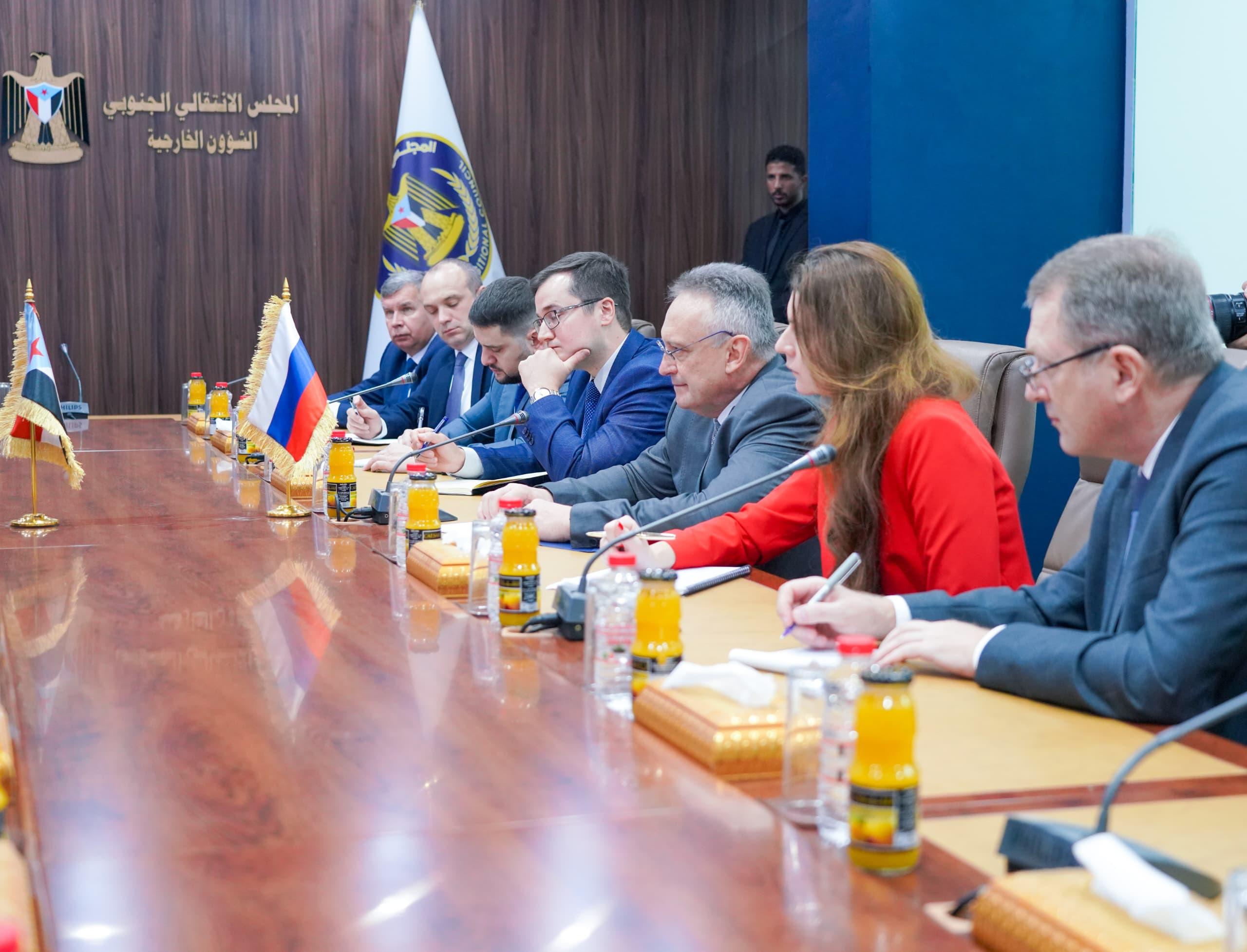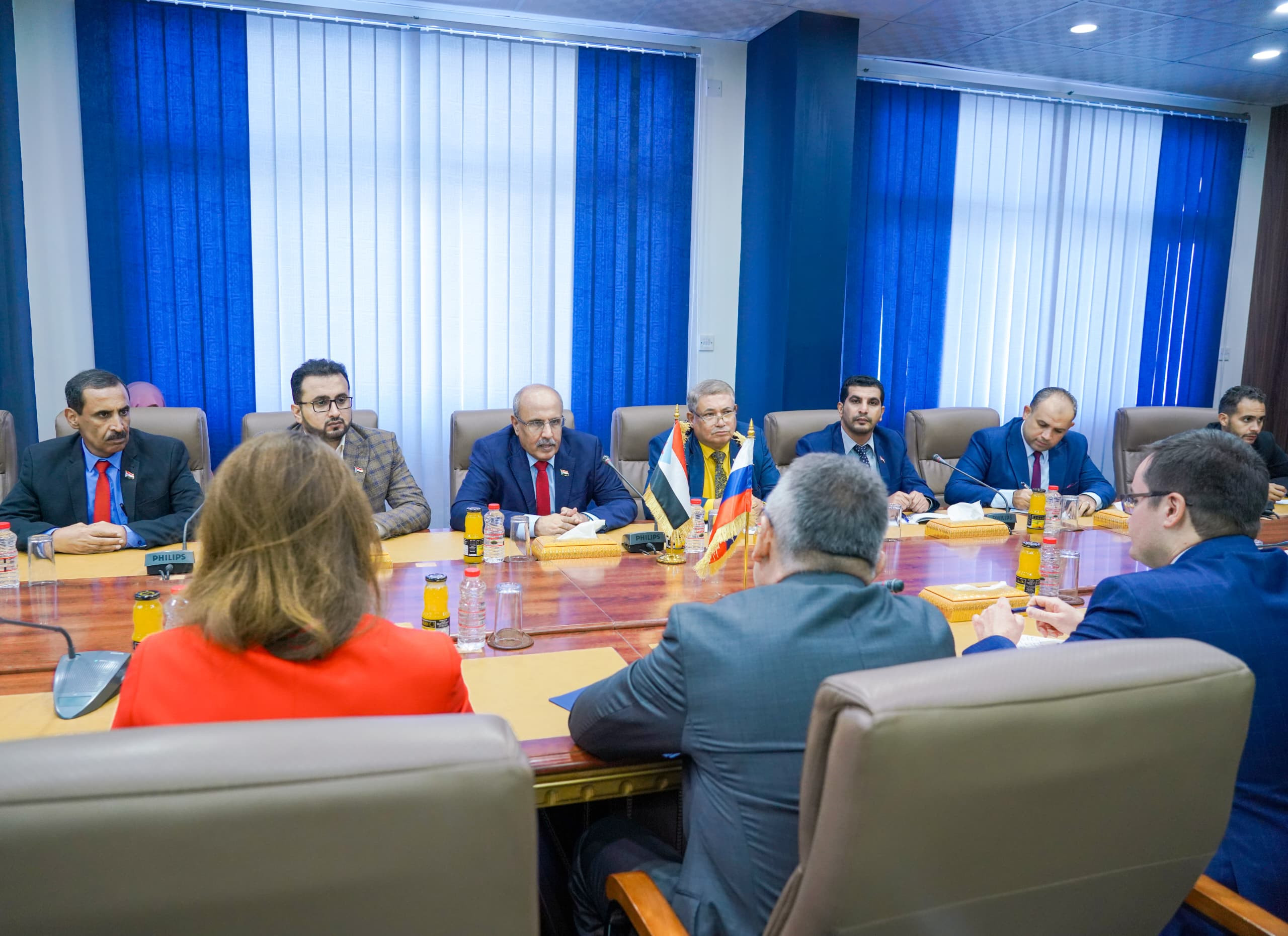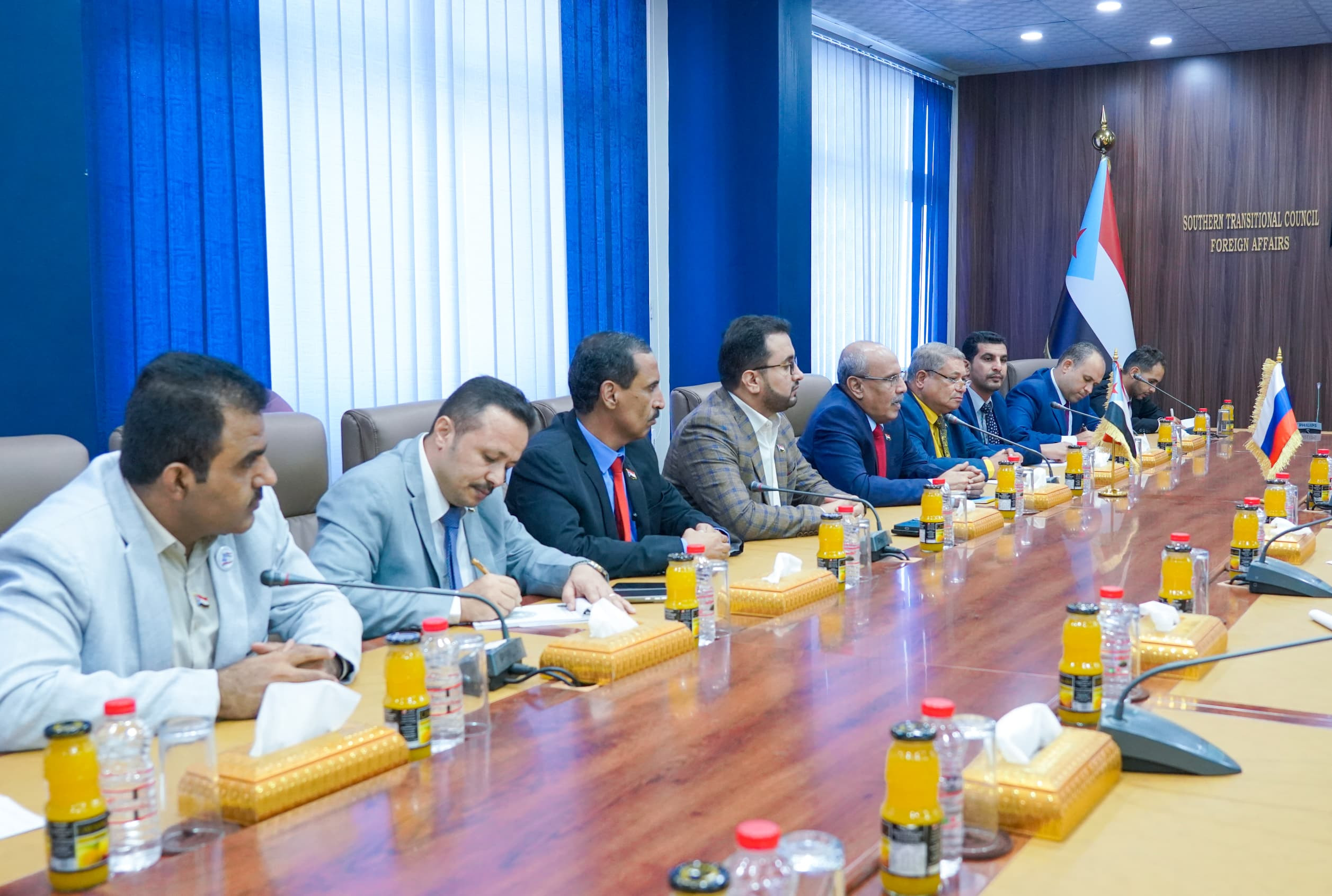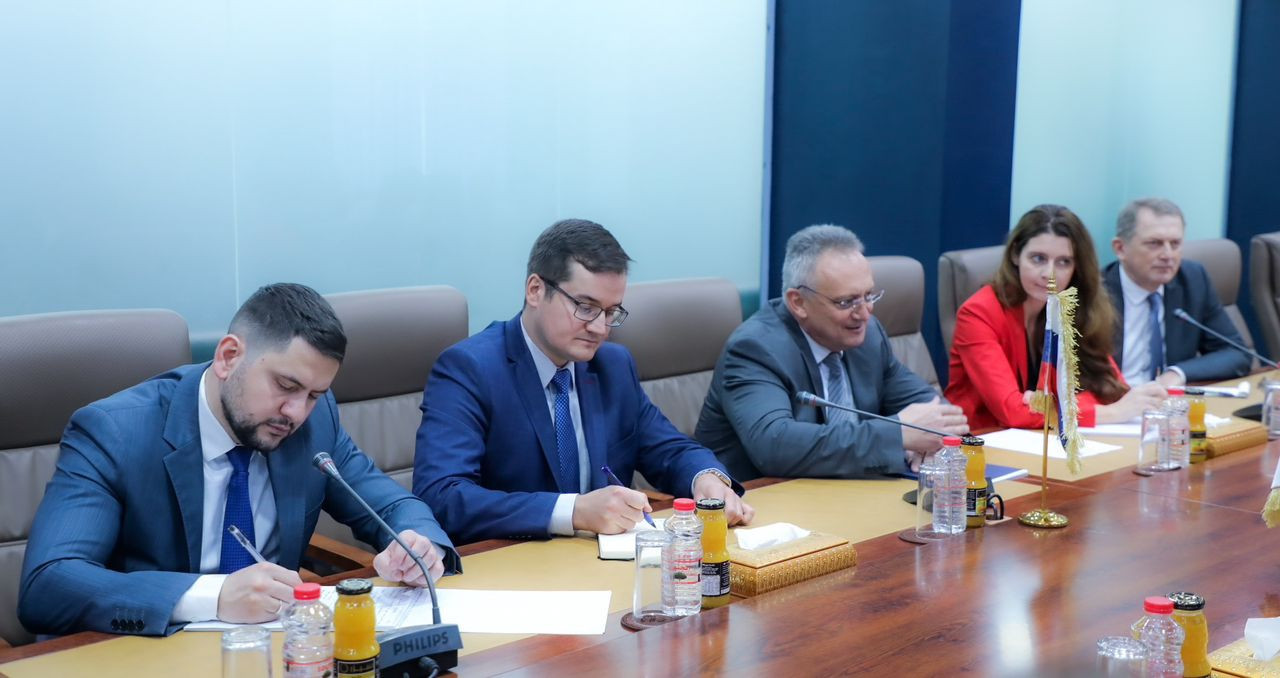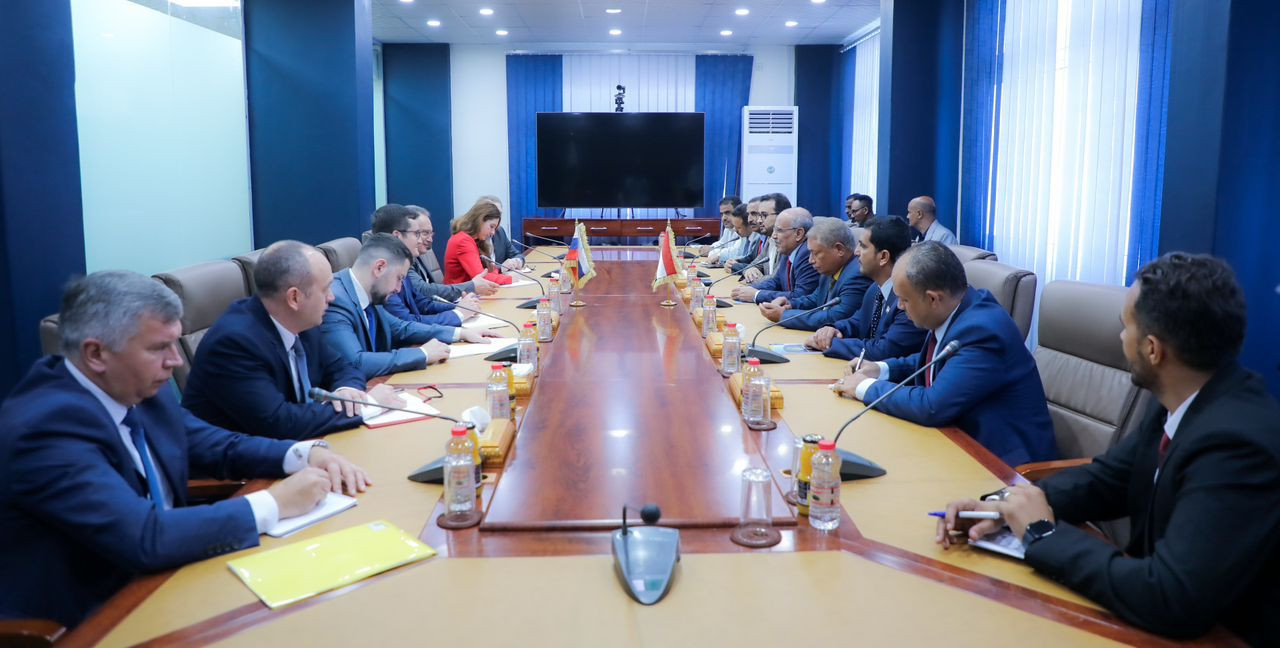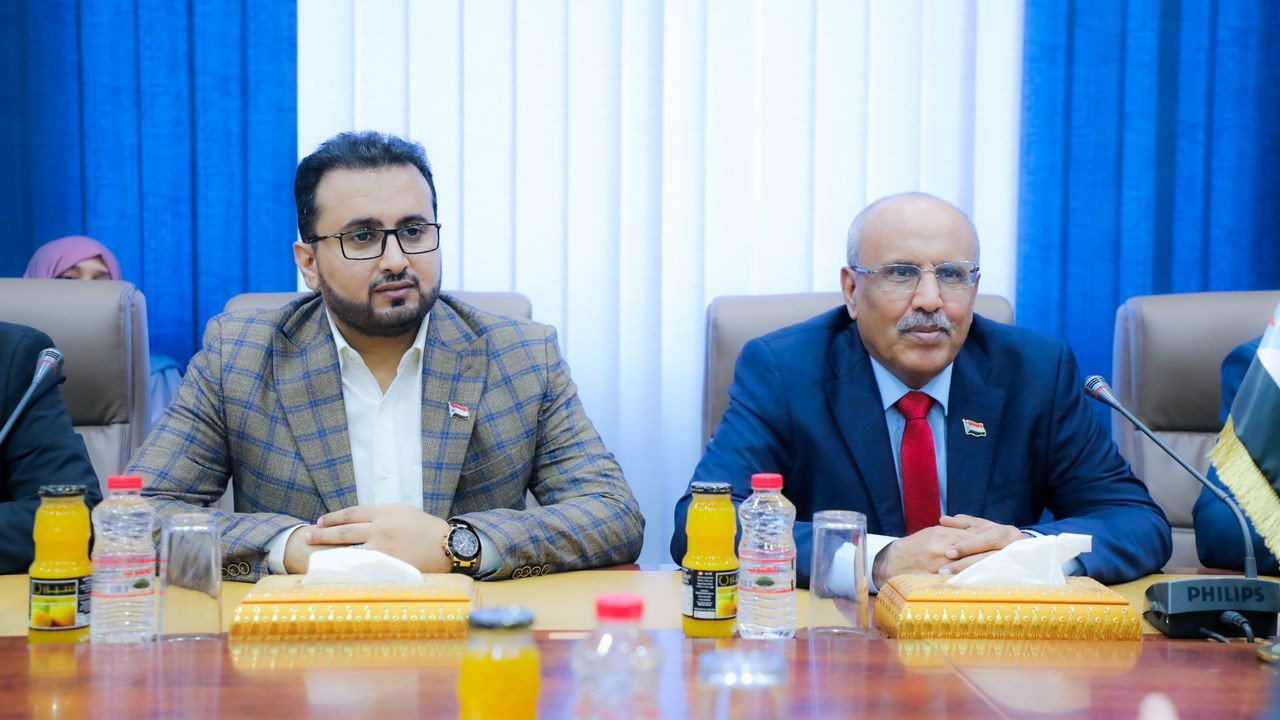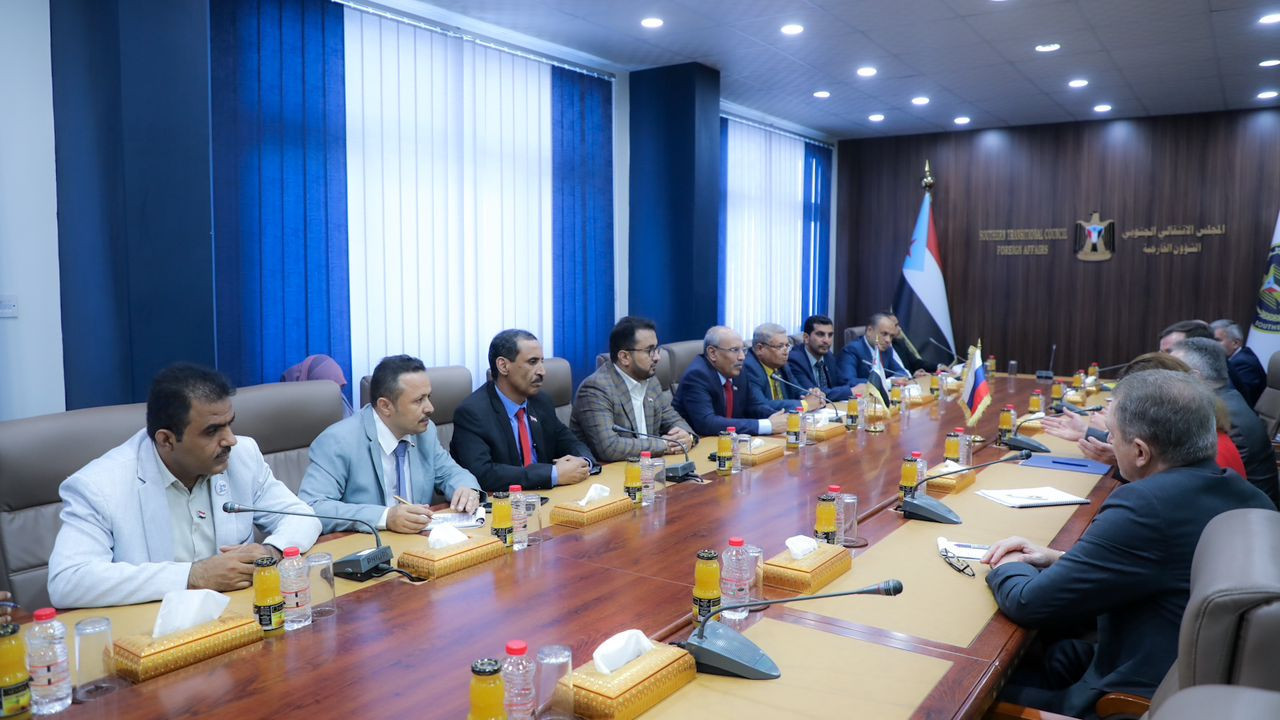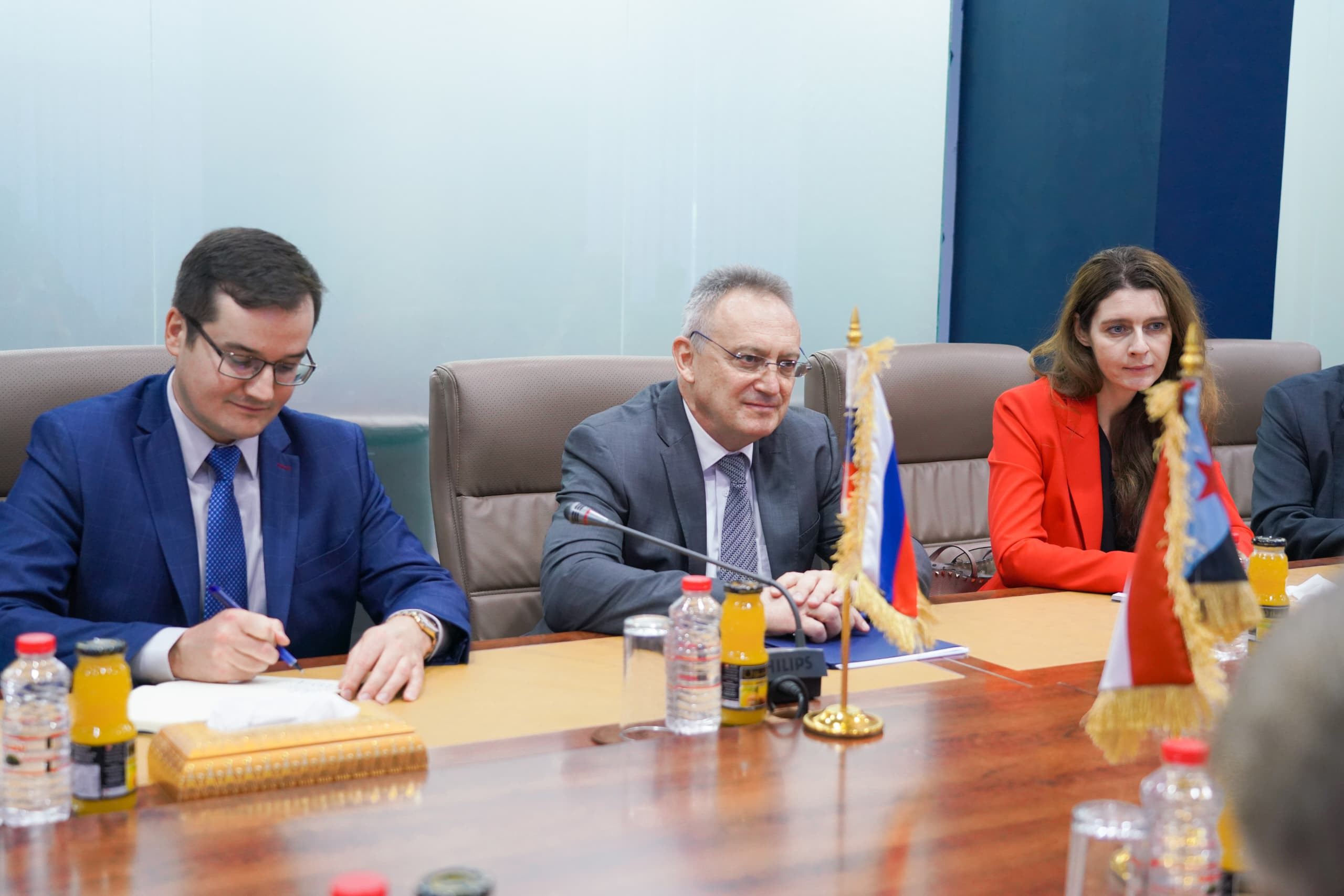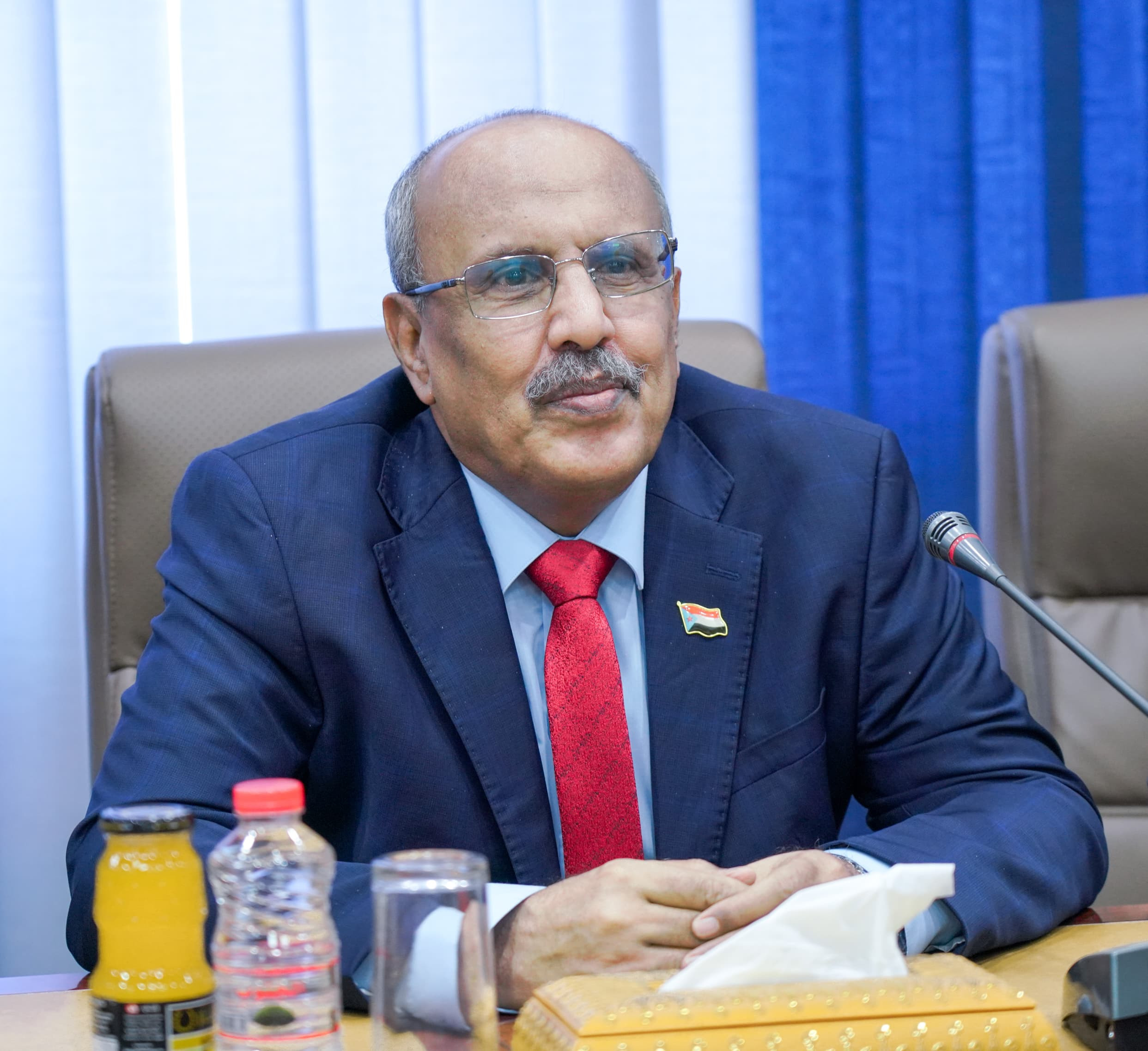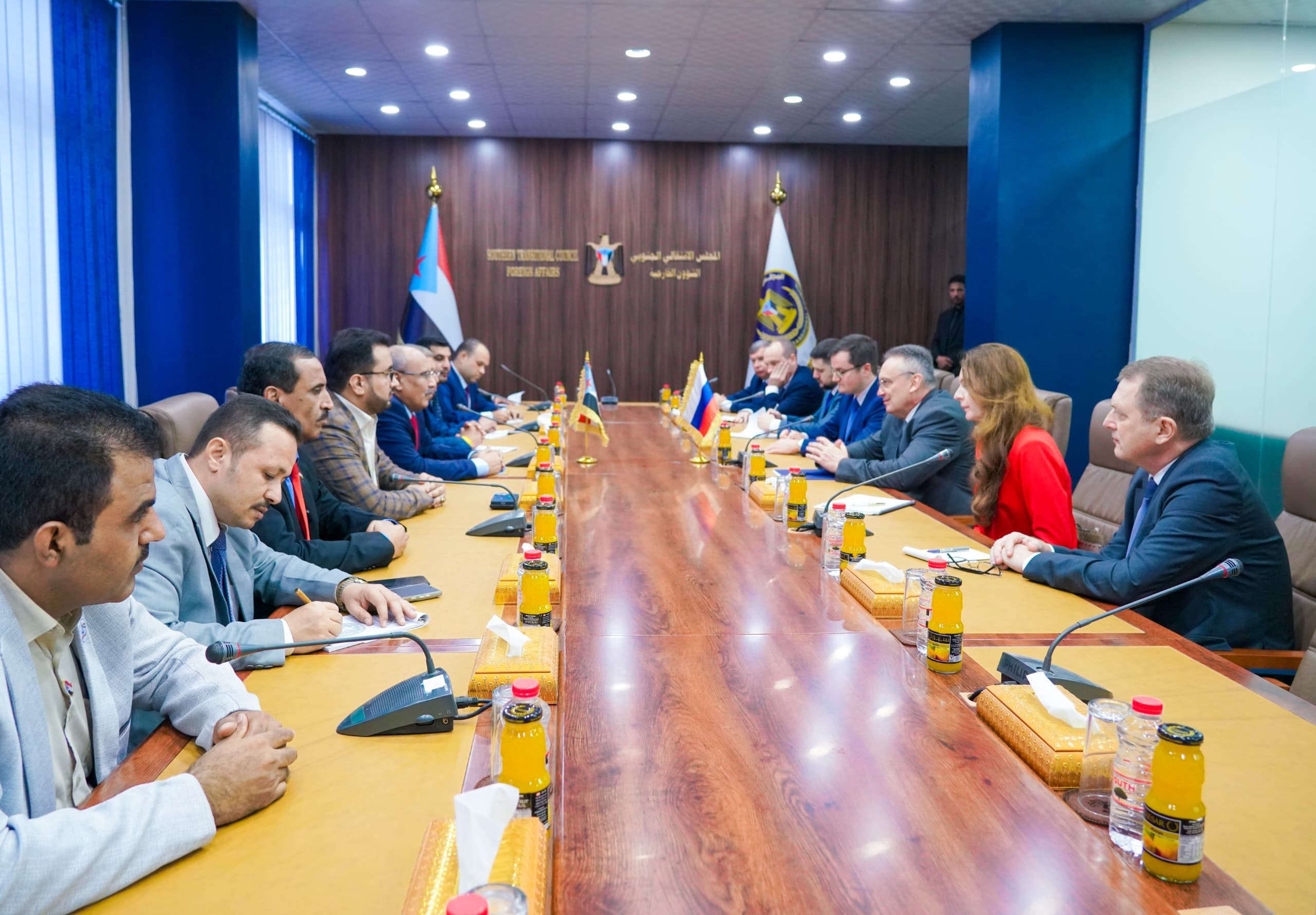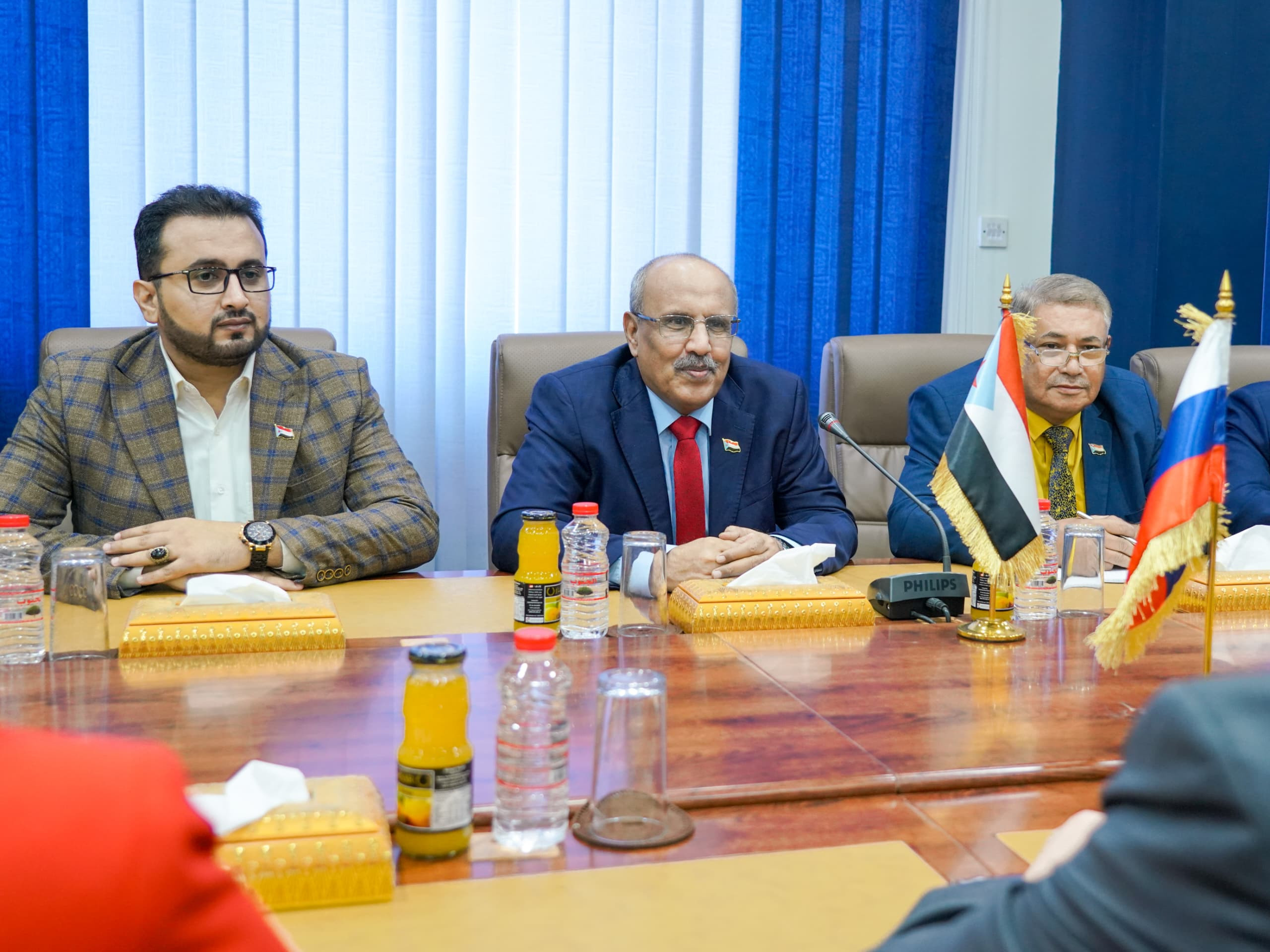Al-Muharrami Stresses Key Role of Private Sector in Stabilizing Currency and Growing Economy
Mr. Abdulrahman Al-Muharrami, Deputy President of the Southern Transitional Council (STC) and member...
Mr. Ali Abdullah Al-Kathiri, Acting President of the Southern Transitional Council (STC) and Chairman of the National Assembly, has received today, Tuesday, at the headquarters of the Foreign Affairs and Expatriates Authority (FAEA) of the STC the Russian delegation, led by Mr. Alexander Kinschak, the Director of the Middle East and North Africa (MENA) Department of the Russian Ministry of Foreign Affairs (MFA).
In the beginning of the meeting, Mr. Al-Kathiri welcomed Ambassador Kinschak and his accompanying delegation, conveying the greetings of President Aidarous Qassem Al-Zubaidi, President of the STC, Vice Chairman of the Presidential Leadership Council (PLC), expressing his happiness at this visit, which comes as an extension of the long-standing and deep-rooted historical relations that bring together the South and the Russian Federation, and the peoples of the two friendly countries.
The acting president of the STC held extensive talks with the Russian diplomatic delegation, including the chargé d'affaires of the Russian embassy, Mr. Yevgeny Kodrov, and representatives from the Russian MFA and Ministry of Defense. The discussions focused on arrangements for reopening the Russian consulate and embassy in the capital, Aden.
Mr. Al-Kathiri highlighted the STC's welcome for the significant strategic step taken by the Russian political leadership, represented by His Excellency President Vladimir Putin, in reopening the consulate and operating the Russian embassy from the capital, Aden, and expressed the STC's readiness to provide all necessary security, and logistical facilities to enable the Russian consular and diplomatic mission to fully carry out its work and accomplish its tasks.
The discussions, attended by Mr. Salem Thabet Al-Awlaqi, head of the National Southern Media Authority (NSMA), the official spokesman of the STC, and Dr. Khaled Ba-Madhaf, deputy head of the Political Commission of the STC, touched on the latest developments related to the political process and the efforts undertaken by regional states and the international community to halt the war and bring about peace in the country and the region.
In this regard, Al-Kathiri reiterated that discussing a peace process while the Houthi militia persistently escalates its attacks, targeting international shipping lanes in the Red Sea, Bab al Mandab, and the Gulf of Aden, as well as engaging in ongoing hostilities against the Southern Armed Forces and shelling civilians in border areas, is both illogical and unrealistic.
Al-Kathiri pointed out the Houthi militia's aggressive acts and its utilizing of the Gaza conflict as a pretext, shed light on the terrorist nature upon which this terrorist militia was founded, and further revealed a clear determination on its part to undermine peace efforts.
Al-Kathiri has reaffirmed the STC's commitment to peace and its willingness to engage in any initiatives aimed at ending the ongoing conflict and creating conducive conditions for a comprehensive political process that addresses the root causes of the conflict, which date back to the 1994 civil war, stressed the importance of accommodating all the changes that have occurred on the ground and the right of the people of the South for self-determination and the restoration of their state, and expressed the STC's hope that Russia, with its strong relations with regional and international actors, would play a more active role in this respect.
The meeting provided an opportunity to review the deteriorating economic and humanitarian conditions in the capital, Aden, and the governorates of the South, with the situation now exceeding the endurance of citizens of the South. In addition, the military and security efforts undertaken by the Southern Armed Forces to establish security and stability and combat terrorism were discussed, along with the achievements made in this regard and the means to sustain them.
Al-Kathiri indicated that the STC hopes that the Russian Federation would expand its interventions in vital sectors, particularly electricity and energy, and bolster development projects in the capital, Aden, and the rest of the governorates in continuation of its role in supporting these sectors in our country, building on its historic role in these fields, the legacy of which is still felt today.
For his part, the ambassador Alexander Kinschak expressed his delight at visiting the capital, and the warm welcome extended to him and his delegation by the leadership of the STC affirmed that his government's decision to reopen the Russian consulate in Aden is a tangible outcome of the city's improved security situation and the return of state institutions. This move, he added, is a clear indication of the potential for Russia to play a more active role and engage in joint coordination across various sectors.
The ambassador Kinschak reaffirmed his government's commitment to supporting efforts aimed at achieving a just and comprehensive ceasefire, one that takes into account the presence of all actors on the ground, including the STC, and underscored his government's readiness to exert maximum efforts in this regard.
As the meeting concluded, the ambassador Kinschak asked the Acting President of the Transitional Council to convey the greetings of His Excellency Russian President Vladimir Putin and Foreign Minister Sergey Lavrov to President Aidarous Al-Zubaidi and extended a cordial invitation of the Russian leadership for him to visit the capital, Moscow.
The meeting was attended by Mr. Mohammed Batis, Head of the Political Department of the General Secretariat of the STC, Dr. Mohammed Ba-Sarda, Head of the Legal and Human Rights Department of the General Secretariat, and Mr. Fahim Saif, office head of the Director of FAEA.
